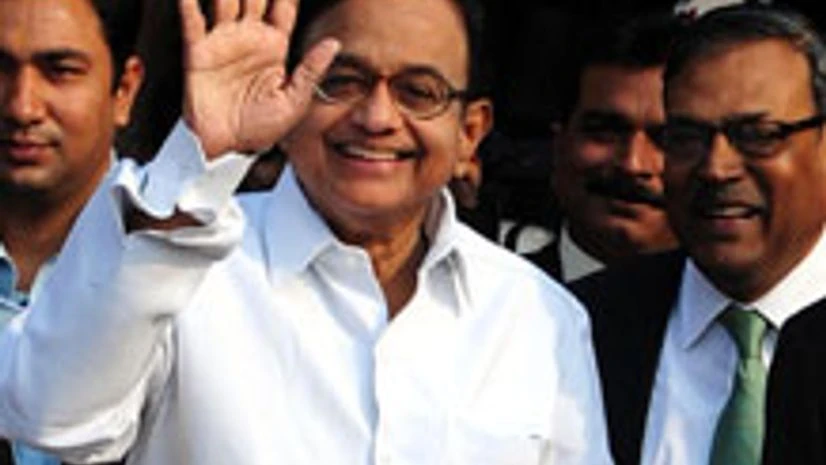While continuing to stress the importance of achieving three per cent fiscal deficit by 2016-17, Finance Minister P Chidambaram on Monday focused on the manufacturing sector, especially exports, and proposed the least tariff protection and waiver or rebate of all central and state taxes to incentivise the domestic market. These were part of a 10-point agenda he laid down in the 2014-15 interim Budget speech.
Terming manufacturing the ‘Achilles Heel’ of the economy, Chidambaram said deceleration in investment in this sector was particularly worrying. The National Manufacturing Policy had set a goal of increasing the share of manufacturing in gross domestic product to 25 per cent, as well as creating 100 million jobs through a decade, he said.
The government had “no room for any aversion to foreign investment”, as this was the only way to finance India’s current account deficit (CAD), he said, adding the country would record a CAD for the next few years, and this would have to be funded by foreign direct investment, foreign institutional investment, extra commercial borrowings or other such foreign investments.
The government expects to add about $15 billion to India’s foreign exchange reserves by the end of this financial year and contain the CAD at $45 billion.
Chidambaram said price stability and growth had to go hand-in-hand and while formulating the monetary policy, the Reserve Bank of India (RBI) had to strike a balance. “In a developing economy, we must accept when our aim is high growth, there will be a moderate level of inflation,” he said. At the end of January 2014, Wholesale Price Index-based inflation stood at 5.05 per cent, while core inflation was three per cent. The finance minister said the government and RBI had acted in tandem, though there was more work to be done, as food inflation remained a concern.
For long-term funds and pooling of investments, the government will also target rebuilding infrastructure and creating new financing structures. “Every proven model must be adopted and the public-private partnership model must be more widely used,” Chidambaram said.
The recommendations of the Financial Sector Legislative Reforms Commission that required no change in legislation must be implemented immediately, he said.
Chidambaram also listed the judicious doling out of subsidy as one of the 10 tasks. Considering the limited resources and the numerous claimants, only those subsidies that were absolutely necessary should be given to the absolutely deserving, he said. Urbanisation was one of the issues that had to be addressed by tapping the wealth created by cities and rebuild these with a “new model of governance,” the finance minister said.
The government would aim towards skill development, along with secondary and university education, total sanitation and universal health care, in its list of priorities. Sharing of responsibilities between the Centre and states was one of the goals of the United Progressive Alliance government. Chidambaram said states must be willing to bear a reasonable proportion of the financial costs for implementing flagship programmes, as they have the fiscal space to do so. The Centre would then allocate more resources towards defence, railways, national highways, telecommunications, etc, which were its exclusive responsibilities.
The 2014-15 interim Budget has seen a steep rise in central assistance to states.

)
